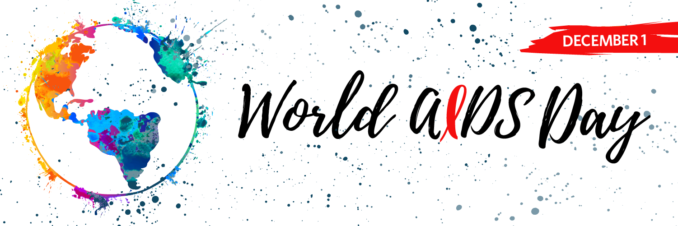World AIDS Day! A day of remembrance and solidarity
December 1 is World AIDS Day, a day when we reflect on those who have died — and are, hopefully, supporting people living with HIV and AIDS. This special day was first declared by James W. Bunn and Thomas Netter in 1988. They chose Dec. 1 as the date so it would avoid the elections and precede Christmas.

World AIDS Day is an important day that we, as radical queers or as revolutionary communists, can use to remind ourselves of our duty to remember the lost and the queer possibilities that fell apart. These queer possibilities are the contributions we give to society in art, music and philosophical theory. There are even more queer possibilities, with friendships, lovers and families. All the things that are personal and public that people could have been or could have accomplished were wiped away by a then-novel retrovirus that was eventually named the human immunodeficiency virus (HIV).
Queer people have been and still are blamed for the spread of HIV in the U.S. The book “And the Band Played On,” although generally good, but outdated, was used to insult and malign queer people, specifically, a gay man named Gaetan Dugas. The publisher, fearful that the book wouldn’t sell, leaked unverifiable stories plucked from the book’s pages about a man who coldly and calculatedly had sex with men in bathhouses, and then disclosed his HIV status (then called “gay cancer”) to partners afterward. This was all untrue. He wasn’t “patient zero.”
People living in the U.S. had developed and died of HIV before Dugas was even sexually active. The true “patient zero” is unknown; that is a good thing as whoever it was would be maligned as he was. Finally, Dugas was involved in getting information — and pushing scientists to get more knowledge — to queer people. He was a hero, not a villain.
‘I hate Ronald Reagan’
In the pamphlet entitled “Queers Read This,” anonymous queers wrote about the condition of queer people in the U.S. A portion of it reads, “I hate Ronald Reagan, too, because he mass murdered my people for eight years.” (tinyurl.com/y6tqwjeq)
This is a historical fact. President Reagan’s staff derided people with HIV/AIDS, particularly ill queer people, and he intentionally dragged his feet on acknowledging the disease and pushing for affordable treatments. Even when the actor Rock Hudson, a friend of Ronald Reagan and Nancy Reagan, begged for intervention in his case so he could get experimental treatment in France, they denied it and allowed him to die. Other supposed friends of the Reagans were mistreated for being queer and having AIDS.
As the late Larry Kramer said in his legendary article, “March 27, 1983: 1,112 and Counting,” “Our continued existence depends on just how angry you can get.” (losangelesblade.com, May 27) This was true in the 1980s; it was revolutionary and radical. It’s still true, revolutionary and radical because the HIV/AIDS epidemic is not over.
Medical corporations have only pursued the goal of making money. This was true when azidothymidine (AZT, zidovudine) was first discovered to have anti-retroviral properties. Companies prioritized their goal of increasing profits above the health and safety of their customers. How did they do that? They allowed tenofovir disoproxil fumarate, a dangerous medication, to be released and sold for years, until the patent ran out. The drugs Viread, Atripla, Complera, Stribild, and Truvada all contained this dangerous medication, which could damage kidneys and bones.
The new, improved, and much safer drug, tenofovir alafenamide, wasn’t released until 2015. Medicines containing this medication – Genvoya, Odefsey, Descovy, Biktarvy, and Symtuza – have come out since then. This should anger people, particularly those whose health was harmed over a few dollars.
On World AIDS Day, we must recall our history and observe our present in order to best serve people living with HIV/AIDS. We must know about and remember the powerful homophobes who caused our elders to suffer in a virtual inferno or turned heroes into villains. We must remind ourselves of the businesses that knowingly produced and sold drugs that could harm people without caring that a safer, more potent alternative could be used. We must remember that these things happened. If we don’t, the lessons our elders left us may be lost.

